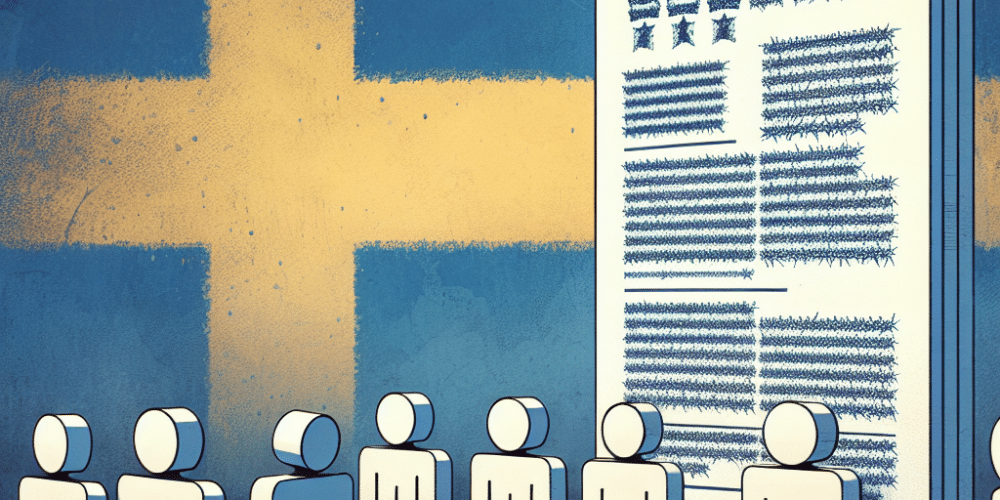The Swedish Trade Association for Online Gambling (BOS) has firmly rejected the recent proposals from Svenska Spel, Sweden’s state-owned gambling company, regarding changes to the gambling market regulations. The proposals have sparked significant debate, as BOS argues that the suggested regulations could lead to unintended negative consequences for the industry.
On October 5, 2025, Svenska Spel presented a comprehensive report containing 18 proposals aimed at refining the regulatory framework of Sweden’s gambling market. The document, spanning 42 pages, emphasizes the need to enhance protections for minors, combat illegal gambling operations, and introduce a risk classification system for games. Svenska Spel’s intentions are clear: they seek to improve player safety, increase market channelization, and strengthen marketing regulations.
A notable point raised in the report is the shortfall in channelization of online gambling within Sweden’s regulated market. Currently, the channeling rate stands at 85%, falling below the government’s target of 90%. Svenska Spel’s submission to the Swedish Gambling Authority is intended to address this gap. As the monopoly holder on lotteries and a key player in the iGaming market, Svenska Spel’s proposals attempt to bolster player protection and regulatory compliance.
However, BOS, led by Secretary General Gustaf Hoffstedt, has expressed strong reservations. Hoffstedt warns that these proposals could impair channelization efforts and inadvertently provide Svenska Spel with an unfair advantage over other licensed iGaming operators. The proposed risk classification system is of particular concern, as it could disproportionately impact online casinos, a sector already facing intense competition from both legal entities and illegal operators. Hoffstedt cautioned that such measures might exacerbate existing challenges, further skewing the playing field.
BOS stresses that Sweden’s online casino sector is already subjected to some of the strictest regulations in Europe. This regulatory intensity has driven many Swedish players to seek alternatives on unlicensed offshore platforms. The association emphasizes that adding more regulations could aggravate this trend, reducing the attractiveness of the legal market.
Drawing comparisons with Denmark, BOS highlights that the Danish model has achieved over 90% channelization without resorting to stringent restrictions. The experience in Denmark suggests that consumer appeal, rather than heavy-handed regulations, is key to effective market regulation.
The association is also critical of deterrent measures such as DNS blocking and payment bans, arguing that they are ineffective in changing consumer behavior. Furthermore, BOS casts doubt on Svenska Spel’s motives, suggesting that the company’s proposals may not be primarily centered on consumer protection. Given its unique position, operating in both monopoly and competitive sectors, Svenska Spel stands to benefit if restrictions on private-sector competitors are tightened.
BOS warns that these proposals could inadvertently disadvantage private operators, reinforcing Svenska Spel’s dominant position in the lottery and land-based gambling sectors. The association underscores the necessity of a balanced approach to consumer protection—one that ensures robust safeguards without rendering licensed options unattractive, thereby driving players towards unregulated sites.
A contrasting viewpoint considers the potential benefits of Svenska Spel’s proposals. Proponents argue that stricter regulations could enhance consumer trust and create a safer gambling environment, ultimately leading to higher channelization rates. They assert that tighter controls on marketing and riskier game classifications could deter players from engaging with illegal operators, aligning with the overarching aim of consumer protection.
While Svenska Spel’s intentions may be focused on tightening the regulatory framework for improved safety and market integrity, BOS’s objections highlight the complexities involved in modifying existing regulations. The debate underscores a broader conversation about the optimal balance between regulation and market freedom, consumer protection, and industry competitiveness.
As Sweden navigates this regulatory crossroads, the outcome of this debate will likely influence the future dynamics of its gambling market. The challenge remains to develop a framework that encourages a fair competitive landscape, robust consumer protection, and sustainable industry growth. With both sides presenting compelling arguments, the Swedish Gambling Authority faces a critical decision-making process that will require careful consideration of all stakeholder perspectives.
The ongoing discourse between Svenska Spel and BOS reflects the evolving nature of the gambling industry, where regulations must adapt to changing market conditions and consumer behaviors. As stakeholders await the Swedish Gambling Authority’s response, the emphasis remains on finding a regulatory equilibrium that protects players while fostering a vibrant, competitive market.

David Harrison stands tall in gambling journalism, marrying his firsthand casino experiences with a deep understanding of betting psychology. His articles transform complex gambling jargon into engaging tales of strategy and chance, making the world of betting accessible and enjoyable. David’s knack for narrative extends beyond print, making him a sought-after speaker on gambling trends and future bets. In the realm of gambling, David is both a scholar and a storyteller, captivating readers and listeners alike.
















